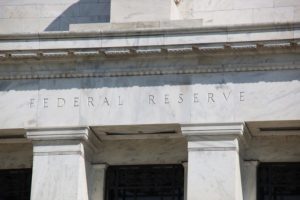Govt’s Loan Mod Program Crippled by Lax Oversight and Deference to Banks
With millions of homeowners still struggling to stay in their homes, the Obama administration’s $75 billion foreclosure prevention program has been weakened, perhaps fatally, by lax oversight and a posture of cooperation—rather than enforcement—with the nation’s biggest banks.By Paul Kiel and Olga Pierce, ProPublica
With millions of homeowners still struggling to stay in their homes, the Obama administration’s $75 billion foreclosure prevention program has been weakened, perhaps fatally, by lax oversight and a posture of cooperation—rather than enforcement—with the nation’s biggest banks. Those banks, Bank of America, Wells Fargo, JPMorgan Chase, and Citibank, service the majority of mortgages.
Despite a dismal showing for the program, rising complaints from homeowners, and repeated threats from officials, the government has levied no penalties against even the most error-prone banks and mortgage servicers. In fact, despite issuing public warnings for more than a year about imposing penalties, the Treasury Department told ProPublica this week they don’t even have the power to punish servicers for wrongfully denying help to homeowners. Instead of toughening the program, Treasury has actually loosened it in the face of industry lobbying.
Over the past year, ProPublica has been exploring why the government’s program has helped so few homeowners. Over the coming weeks, we will be detailing how the administration quietly retreated from a plan to get tough on banks, why the mortgage servicing industry lacks incentives to invest in helping homeowners, how the industry succeeded in thwarting oversight, and what reforms could lead to more help for homeowners.
The stories are based on newly disclosed data, lobbying disclosures, dozens of interviews with insiders, members of Congress, and others. Today’s story looks at the timidity of Treasury’s oversight, a conclusion echoed in a government report Wednesday.
“At some point, Treasury needs to ask itself what value there is in a program under which not only participation, but also compliance with the rules, is voluntary,” says the new report, from the special inspector general for the TARP. “Treasury needs to recognize the failings of [the program] and be willing to risk offending servicers. And if getting tough means risking servicer flight, so be it; the results could hardly be much worse.”
The administration launched the program nearly two years ago, in early 2009, promising it would help three million to four million troubled American borrowers rework the terms of their mortgages. Amid widespread reports that servicers have been wrongly rejecting homeowners, losing paperwork, and otherwise breaking the program’s rules, it appears the program will fall far short. The Congressional Oversight Panel now estimates fewer than 800,000 homeowners will ultimately get lasting mortgage modifications.
An early problem for the program was that banks and other mortgage servicing companies were quickly letting homeowners into the program on a trial basis, but failing to make decisions regarding hundreds of thousands of homeowners while multiple government deadlines passed.
To push banks to solve the problem, senior Treasury official Michael Barr, who has since left the department, warned in a November 2009 conference call with journalists that if the banks didn’t clear their backlogs, the firms would “suffer consequences.” Treasury issued a press release the same day saying banks could face “monetary penalties and sanctions.”
It turns out Treasury had already taken most penalties off the table.
The program rests on contracts that Treasury drafted and banks signed onto. To participate in the program and receive potentially billions in government incentives, banks and mortgage servicers agreed to offer homeowners modifications under guidelines subsequently drawn up by the government. In exchange, they would receive $1,000 for a completed modification and up to $4,000 if the loan continued to perform.
The contracts say Treasury can withhold or claw back incentive payments to servicers when they violate the contract. Members of Congress and homeowner advocates have long pushed Treasury to issue such penalties. There have also been calls within Treasury itself.
Around the same time that Barr and other officials were making public threats, Treasury staffers were looking at reports showing that some banks were modifying virtually no loans. Frustrated, they called at an internal meeting for withholding payments to the worst offenders or imposing fines, according to a person familiar with those discussions. But the staffers were walked back by Treasury lawyers, who said the government was only party to a commercial contract with servicers and not acting as their regulator.
Despite Treasury officials appearing before Congress and elsewhere warning of potential penalties, the department told ProPublica after months of questioning that its hands are tied. Treasury now says it has a very narrow authority to withhold incentives under the contracts. Only in cases where the servicer incorrectly granted a modification and claimed a payment can Treasury withhold or claw back a payment as a punishment.
That interpretation of the contracts means that if a homeowner was wrongfully denied help through the program, there is no possible financial penalty.
“There is no provision in the contract that permits Treasury to assess punitive fines or penalties for a servicer’s failure to modify a loan, for an improper modification of a loan, or for failure to adhere to any other program requirements,” said a Treasury spokeswoman.
Experts say Treasury is handcuffing itself. Alan White, a law professor at Valparaiso University, called Treasury’s interpretation of its own contracts “extremely crabbed.” Treasury does have the power to punish servicers for broad violations by withholding incentive payments, he said, and it could also sue servicers for not fulfilling the contract.
Additionally, Treasury has the power to change the contracts, said Julia Gordon from the Center for Responsible Lending. (The Sandler Foundation is a major funder of both the Center and ProPublica, which operate independently of each other.)
The reason Treasury hasn’t changed them, Gordon said, is that Treasury is afraid servicers would drop out of the voluntary program, known as the Home Affordable Modification Program (HAMP), in the face of real penalties.
“If servicers don’t get paid for future modification activity, there is a risk that they will be less inclined to continue completing HAMP modifications or to follow HAMP guidelines to evaluate homeowners for all loss mitigation options before referring them to foreclosure,” said a Treasury spokeswoman.
Instead of getting tough with servicers, Treasury says they work with banks to make sure problems are fixed.
When government audits of banks’ modification practices revealed they were frequently breaking the rules, Treasury officials worked through a process they call “remediation.”
One audit, conducted on Treasury’s behalf by the government-supported mortgage company Freddie Mac, found that 200,000 struggling homeowners had not been told they were eligible for the program, as servicers are required to do. Auditors also found 15 of the largest 20 participating servicers were incorrectly using the Treasury formula that determines if homeowners qualify for the program.
Rather than imposing penalties, Treasury simply asked the servicers to contact the homeowners that had been missed and rerun the numbers for those who had been wrongfully denied because of the formula error.
“The servicer says, ‘you’ve caught me this time,’ but it doesn’t improve widespread non-compliance because there’s no real penalty,” said Alys Cohen of the National Consumer Law Center.
Dawn Patterson, Treasury’s chief of compliance for the program, explained that the idea was to allow servicers time to get “their programs built, their processes more shored up.” Patterson says Treasury is continuing to use that approach.
Treasury’s own records call into question the impact of those efforts. Documents obtained by ProPublica via a Freedom of Information Act request show homeowner complaints to a Treasury-sponsored hotline have actually increased during the past year. The most common complaint is that the servicer has violated the program’s guidelines.
Servicers have also at times been uncooperative with the government’s own auditors. Even getting the right documents from servicers has “been a cumbersome process,” the head of the government’s audit team, Paul Heran, said last year at an industry conference. It seemed, he added, the task was often relegated to low-level staff who didn’t understand the requests. Another manager in the unit, Vic O’Laughlen, said servicers tended to respond with “at best fifty percent of what we’re expecting to see.”
A Treasury spokeswoman said that “servicer operations, especially in larger organizations, are complex,” and producing the documents can be difficult.
The government’s oversight has also been hampered by a lack of transparency by Treasury itself. The department has kept its audits of servicers secret. It also does not have a written policy for how it would address rule violations by banks, an omission criticized in a Government Accountability Office report last year and not yet addressed. Treasury says it does have a process for dealing with banks’ noncompliance, just not a written one.
The lack of oversight has been particularly damaging, since mortgage servicers have little incentive to do modifications on their own.
Servicers handle homeowner payments for investors who own the loans. Since servicers don’t own the vast majority of the loans they service, they don’t take the loss if a home goes to foreclosure, making them reluctant to make the investments necessary to fulfill their obligations to help homeowners.
“By every metric, the failure of the largest servicers to carry out the program is obvious,” said Prof. White. The noncompliance has gone unpunished, he said, because “Treasury staff are preoccupied with friendly relations with the banks. Sometimes it seems the banks own Treasury.”
Meanwhile, the industry has continued to lobby for changes in the program.
Last summer, Treasury significantly weakened a tool that would have helped keep servicers accountable after officials met with industry lobbyists, documents show.
When banks entered the program, they agreed to certify annually that they’ve followed the rules of the program. But lobbyists from the Financial Services Roundtable and the Mortgage Bankers Association suggested adding exemptions.
Instead of certifying that banks had followed all the rules, the industry proposed that they could ignore problems affecting less than five percent of homeowners eligible for the program. In the case of Bank of America, which handles more mortgages than any other bank, that meant the bank would not have to report an error that occurred nearly 20,000 times.
The industry also suggested that no matter how widespread a problem, servicers could assert they were complying with the law as long as they pledged to fix problems “to the extent practicable.” The previously unreported proposal was disclosed through an administration policy of releasing lobbying contacts related to the TARP.
Later that month, the Treasury revised its certification requirements, making them similar to those the industry sought. Under the new rules, servicers can define for themselves what violations were significant enough to disclose.
The new policy is “not only like putting the fox in charge of the hen house,” said Cohen of the National Consumer Law Center, “but asking the fox to fine itself for each chicken eaten.”
A Treasury Department spokeswoman said the industry’s lobbying did not affect the final guidance, because Treasury was already going to make several of the servicers’ suggested changes. It was never the department’s intention that “a servicer submit a list of every individual instance of non-compliance.” If servicers give themselves inappropriate leeway, she said, Treasury would work with them to address the problem.
Unless servicers fear real penalties, the troubled program is unlikely to improve, said Richard Neiman, New York state’s chief bank regulator. “There needs to be a greater effort on enforcement, on assigning sanction and fines where there has been noncompliance. We cannot rely solely on servicers to police themselves.”
Your support matters…Independent journalism is under threat and overshadowed by heavily funded mainstream media.
You can help level the playing field. Become a member.
Your tax-deductible contribution keeps us digging beneath the headlines to give you thought-provoking, investigative reporting and analysis that unearths what's really happening- without compromise.
Give today to support our courageous, independent journalists.






You need to be a supporter to comment.
There are currently no responses to this article.
Be the first to respond.